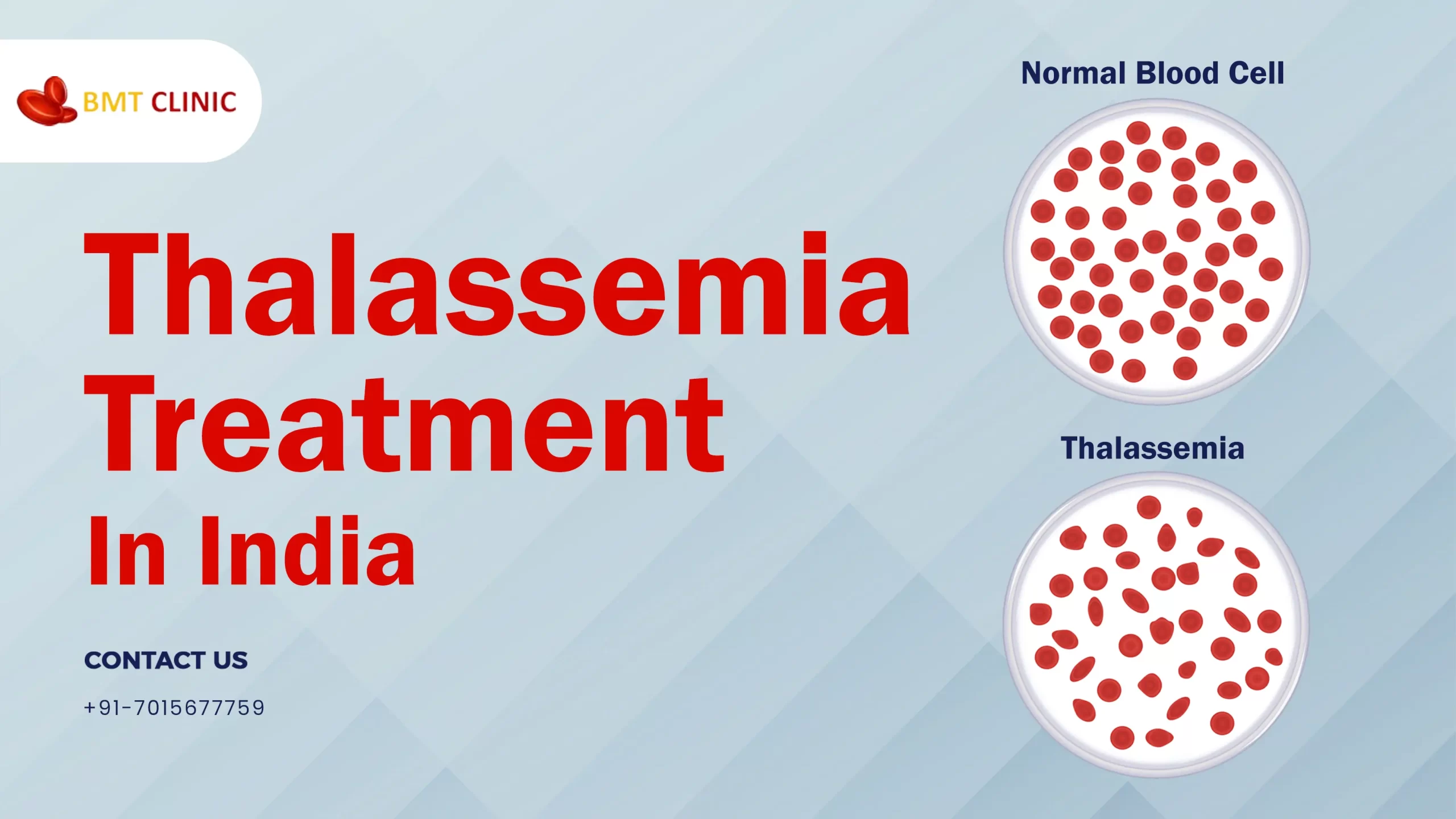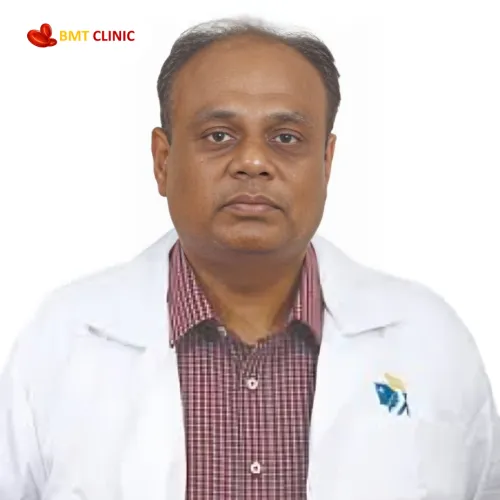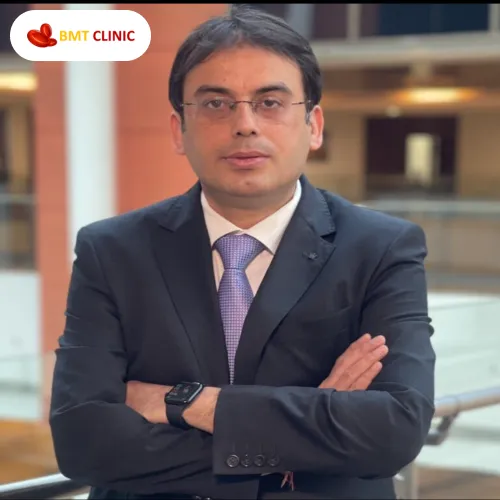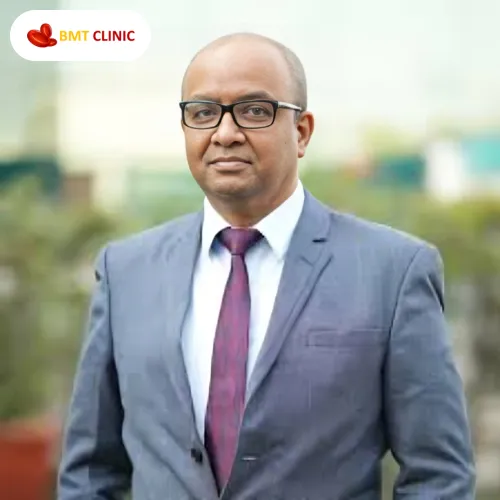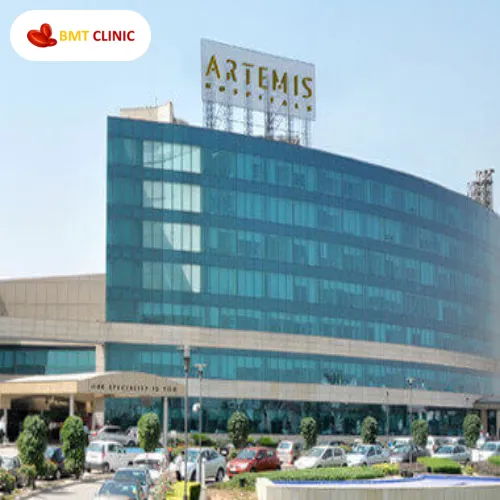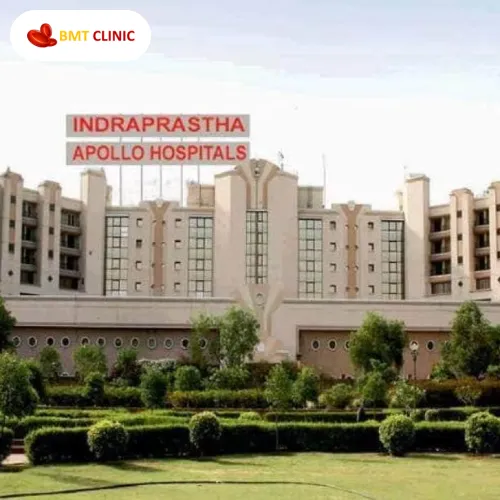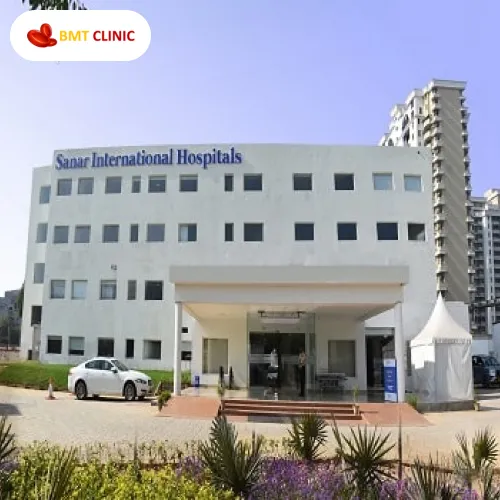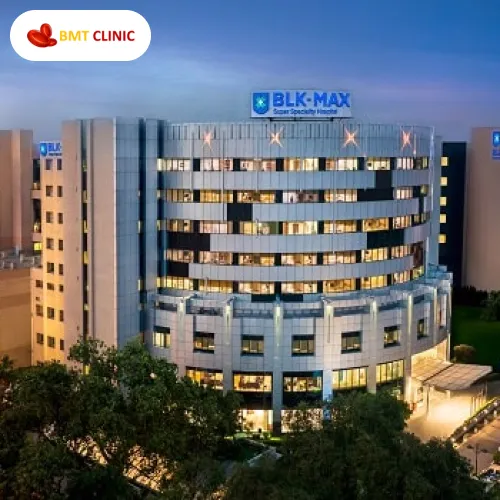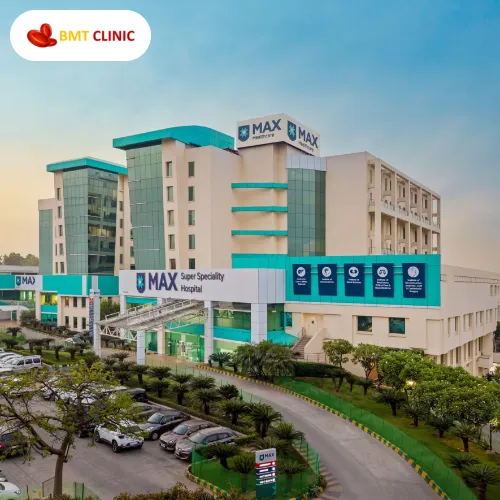Today, medical tourism is becoming one of the fastest-growing sectors. India has emerged as a global leader in thalassemia treatment. It is known for its affordability, access to advanced treatments, and highly skilled medical professionals, making it a sought-after destination for international patients.
In this guide, we will provide an overview of the potential expenses associated with thalassemia treatment in India, which may vary depending on factors like hospital location, treatment type, and additional costs such as medications, travel, and follow-up care.
Thalassemia Treatment Cost in India
India is renowned for its robust healthcare system and a number of specialized hospitals that offer comprehensive treatment options for thalassemia. Thalassemia treatment costs in India range from Rs. 12.5 Lakhs to Rs. 33.5 Lakhs ($15,000 to $40,000). It can also vary widely depending on the type of procedure or the location of the hospital, but the cost of treatment in India is generally much more affordable than in Western countries.
Note: Keep in mind that the costs given here are only for the treatment.
Cost Comparison of Thalassemia Treatment Cost in Different Cities in India
| Cities | Prices |
| Thalassemia Treatment Cost in Delhi | Range from 17,000 USD to 40,000 USD |
| Thalassemia Treatment Cost in Noida | Range from 15,000 USD to 40,000 USD |
| Thalassemia Treatment Cost in Gurgaon | Range from 17,000 USD to 40,000 USD |
| Thalassemia Treatment Cost in Bangalore | Range from 18,000 USD to 40,000 USD |
| Thalassemia Treatment Cost in Mumbai | Range from 17,000 USD to 45,000 USD |
| Thalassemia Treatment Cost in Kolkata | Range from 15,000 USD to 35,000 USD |
| Thalassemia Treatment Cost in Chennai | Range from 18,000 USD to 45,000 USD |
| Thalassemia Treatment Cost in Hyderabad | Range from 14,500 USD to 35,000 USD |
Factors That Can Affecting Thalassemia Treatment Cost in India
There are several factors that can influence the cost of thalassemia treatment in India. This includes:
- Type of procedure: The choice between autologous and allogenic stem cell transplants can affect the overall cost.
- Hospital reputation and location: Hospitals in big cities might be costlier than those in the smaller cities.
- Doctor’s expertise: A highly experienced specialist may charge more than a less experienced specialist.
- Duration of hospital stay: Hospitalizations for a longer time can affect the cost of the treatment.
- Pre and post-treatment care: This involves prescriptions, lab tests, drugs, and a subsequent review of the patient’s progress.
- Medication costs: Some treatment procedures involve expensive drugs.
Additional Costs to Consider
When planning a budget for bone marrow treatment in India, it is essential to take into account the following supplementary costs:
- Travel and accommodation for international patients.
- Post-treatment follow-ups and medication.
- Potential complications may extend hospital stays.
- Caregiver expenses.
Understanding Thalassemia Treatment
Thalassemia is a genetic blood disorder characterized by the impaired production of hemoglobin. Hemoglobin is a protein of the RBC that is responsible for binding to oxygen and transporting it to tissues throughout the body. The disruption in the hemoglobin formation can lead to fatigue, weakness, and shortness of breath due to insufficient oxygen delivery to cells and tissues.
This condition affects approximately 4.4 out of every 10,000 live births globally and is particularly prevalent in specific regions and ethnic groups, including Iraq, Uzbekistan, Bangladesh, Pakistan, Nigeria, Liberia, and many others.
Thalassemia is classified into two main types: alpha and beta, based on the affected hemoglobin chains. The severity of the condition depends on how many of the alpha or beta globin genes are affected.
Alpha thalassemia results from defects in genes producing alpha-globin. It’s type includes,
- Silent Carrier State: One gene missing; asymptomatic or very mild anemia.
- Alpha Thalassemia Trait/Minor: Two genes missing; mild anemia, usually asymptomatic.
- Hemoglobin H Disease: Three genes missing; causes moderate to severe anemia.
- Hemoglobin Bart’s Hydrops Fetalis: Four genes missing; severe form, often fatal before or shortly after birth due to severe anemia and organ failure.
Beta thalassemia occurs due to mutations in genes for beta globin. It’s type includes,
- Beta Thalassemia Minor: One mutated gene; mild or no anemia, generally asymptomatic.
- Beta Thalassemia Intermedia: Two mutated genes; causes moderate anemia.
- Beta Thalassemia Major (Cooley’s Anemia): Severe form requiring regular blood transfusions and other treatments.
Types of thalassemia treatment
The treatment of thalassemia depends on the type and severity of the condition.
- Frequent Blood Transfusions: Regular blood transfusions may be needed for managing severe forms of thalassemia, such as beta thalassemia major, to maintain healthy hemoglobin levels. The transfusion may be needed once every week. Over time, the transfusion can cause the iron to build up in the blood, which can damage your body organs.
- Iron Chelation Therapy: This therapy is necessary to remove excess iron from your blood, resulting from frequent blood transfusions. Medications like Deferasirox and Deferoxamine would be helpful.
- Folic Acid Supplements: This supplement may help in the production of red blood cells and is particularly beneficial for patients undergoing regular transfusions to enhance overall blood health.
- Bone Marrow Transplant/Stem Cell Transplant: It’s potential curative treatment for severe thalassemia. It involves replacing the patient’s defective bone marrow with healthy marrow from a compatible donor.
- Gene Therapy: Gene therapy involves delivering healthy copies of the mutated or defective genes into the patient’s cells. This can restore proper hemoglobin production and improve blood cell function.
If thalassemia is left untreated, it may result in serious complications like heart failure, liver problems, and certain infections.
Who May Need A Thalassemia Treatment?
Thalassemia treatment is essential for individuals diagnosed with thalassemia, especially those with more severe forms of this disease.
- A person who has severe or moderate thalassemia condition
- People with a family history of thalassemia whose carriers may seek genetic counseling and testing
- Individuals experiencing complications during treatment, such as iron overload due to frequent blood transfusions
Why a Thalassemia Treatment is Required For Patients Suffering From Blood Disorders?
Thalassemia treatment is crucial for the following reasons:
- To prevent anemia
- Management of complications such as liver damage and heart problems.
- Improve the quality of life
- Provide long-term health.
Preparing for Thalassemia Treatment in India
If you’re considering thalassemia treatment in India, here are some things you may need to be aware of:
- Collect all necessary documentation of prior consultations and diagnostic tests.
- Select a good hospital and a good doctor to operate on you. (You can contact us at BMTClinic.com if you’re looking for thalassemia treatment in India.)
- Verify visa regulations (medical visas for international patients).
- Ensure that you make arrangements for a caregiver to be with you all the time that you are in the hospital.
- It is advisable to plan for an extended trip because the treatment and recovery period may range from weeks to months.
Top Hospitals For Thalassemia Treatment in India
Individuals from various parts of the world travel to India to receive thalassemia treatment procedures, as the nation is home to numerous prestigious hospitals recognized for their proficiency in thalassemia therapies. Here is a list of the top hospitals in India that provide the best thalassemia treatment in India:
- Apollo Hospital
- Fortis Hospital
- Max Hospital
- Manipal Hospital
Why Choose BMTClinic
BMT Clinic is an esteemed organization for patients seeking physicians, medical facilities, and specialized care. We’ll identify the best medical options for you. Our staff will provide you with a list of licensed, respectable, and trustworthy physicians and hospitals based on your medical issues. We also provide a treatment plan that is affordable for you. In addition, we help patients with a variety of other matters, such as obtaining medical visas and travel authorization.

